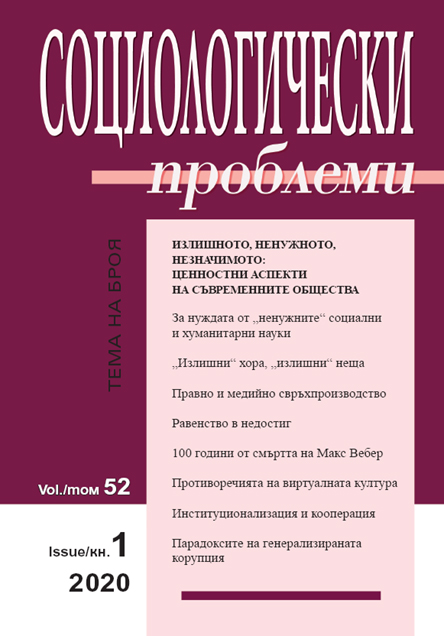Кооперативният земеделски сектор в България при социализма: между традициите и идеологията
Cooperative Agricultural Sector in Bulgaria during Socialism: Between the Traditions and the Ideology
Author(s): Nikolay Nenovsky, Tsvetelina MarinovaSubject(s): Social Sciences, Sociology, Social development, Social differentiation, Economic development
Published by: Институт по философия и социология при БАН
Keywords: agriculture cooperatives; socialism; Bulgarian and Russian cooperative thought
Summary/Abstract: The article deals with the development of the cooperative agricultural sector in Bulgaria during the socialist period (1944–1989). The main objective is to explore the institutional transformation of the sector in that period. This transformation is the result of two leading institutional mechanisms. The first is related to the presence of institutional inertia as a result of the development of Bulgarian peripheral capitalism (path dependence), in which the cooperative sector and social institutions deeply embedded in the Bulgarian population are subject to increasing state intervention and control. The second institutional factor that determines the appearance of the cooperative model under communism is external and is related to the transfer of the Soviet cooperative model after WWII.
Journal: Социологически проблеми
- Issue Year: 52/2020
- Issue No: 1
- Page Range: 301-325
- Page Count: 25
- Language: Bulgarian
- Content File-PDF

